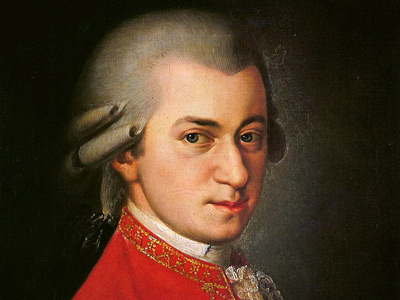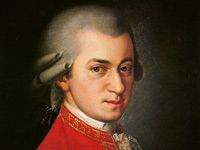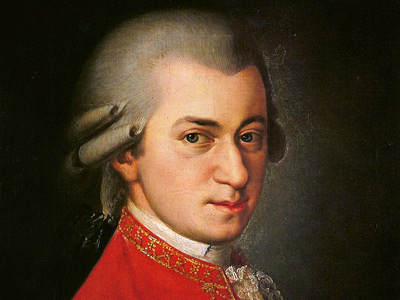Wolfgang Amadeus Mozart (1756-1791)

1791: Final Illness and Death
Mozart's last year was, until his final illness struck, a time of great productivity—and by some accounts, one of personal recovery. He composed a great deal, including some of his most admired works: the opera The Magic Flute; the final piano concerto (K. 595 in B-flat); the Clarinet Concerto K. 622; the last in his great series of string quintets (K. 614 in E-flat); the motet Ave verum corpus K. 618; and the unfinished Requiem K. 626.
Mozart's financial situation, a source of anxiety in 1790, finally began to improve. Although the evidence is inconclusive, it appears that wealthy patrons in Hungary and Amsterdam pledged annuities to Mozart in return for the occasional composition. He is thought to have benefited from the sale of dance music written in his role as Imperial chamber composer. Mozart no longer borrowed large sums from Puchberg, and made a start on paying off his debts.
Advertisement

These books are available for download with iBooks on your Mac or iOS device, and with iTunes on your computer. Books can be read with iBooks on your Mac or iOS device.

These books are available for download with iBooks on your Mac or iOS device, and with iTunes on your computer. Books can be read with iBooks on your Mac or iOS device.
( Click image to enlarge)
He experienced great satisfaction in the public success of some of his works, notably The Magic Flute (which was performed several times in the short period between its premiere and Mozart's death) and the Little Masonic Cantata K. 623, premiered on 17 November 1791.
Mozart fell ill while in Prague for the 6 September 1791 premiere of his opera La clemenza di Tito, written in that same year on commission for the Emperor's coronation festivities. He continued his professional functions for some time and conducted the premiere of The Magic Flute on 30 September. His health deteriorated on 20 November, at which point he became bedridden, suffering from swelling, pain, and vomiting.
Mozart was nursed in his final illness by his wife and her youngest sister, and was attended by the family doctor, Thomas Franz Closset. He was mentally occupied with the task of finishing his Requiem, but the evidence that he actually dictated passages to his student Franz Xaver Süssmayr is minimal.
Mozart died in his home on 5 December 1791 (aged 35) at 1:00 am. The New Grove describes his funeral:
Mozart was interred in a common grave, in accordance with contemporary Viennese custom, at the St. Marx Cemetery outside the city on 7 December. If, as later reports say, no mourners attended, that too is consistent with Viennese burial customs at the time; later Jahn (1856) wrote that Salieri, Süssmayr, van Swieten and two other musicians were present. The tale of a storm and snow is false; the day was calm and mild.
The expression "common grave" refers to neither a communal grave nor a pauper's grave, but to an individual grave for a member of the common people (i.e., not the aristocracy). Common graves were subject to excavation after ten years; the graves of aristocrats were not.
The cause of Mozart's death cannot be known with certainty. The official record has it as hitziges Frieselfieber ("severe miliary fever", referring to a rash that looks like millet seeds), more a description of the symptoms than a diagnosis. Researchers have posited at least 118 causes of death, including acute rheumatic fever, streptococcal infection, trichinosis, influenza, mercury poisoning, and a rare kidney ailment.
Mozart's modest funeral did not reflect his standing with the public as a composer; memorial services and concerts in Vienna and Prague were well-attended. Indeed, in the period immediately after his death, his reputation rose substantially. Solomon describes an "unprecedented wave of enthusiasm" for his work; biographies were written (first by Schlichtegroll, Niemetschek, and Nissen); and publishers vied to produce complete editions of his works.
HISTORY

RESOURCES
This article uses material from the Wikipedia article "Wolfgang Amadeus Mozart", which is released under the Creative Commons Attribution-Share-Alike License 3.0.
© Stories Preschool. All Rights Reserved.









